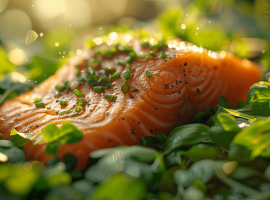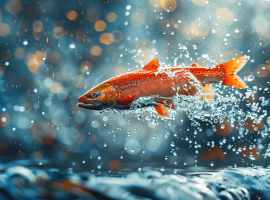Identifying Nutritious Fish for Your Cat
When considering the addition of fish to your cat’s diet, it’s essential to select types that are both safe and nutritionally beneficial. Cats are obligate carnivores, which means they rely heavily on animal protein for their well-being. Fish can be an excellent source of high-quality protein and omega-3 fatty acids, which are vital for maintaining a healthy coat, skin, and overall joint and cognitive function.
Safe Fish Choices for Feline Diets
- Salmon: Offers omega-3 fatty acids and is generally low in mercury.
- Sardines: Packed with omega-3s and vitamin B12, and typically low in contaminants.
- Anchovies: High in protein and unsaturated fats, with fewer mercury risks.
Incorporating Fish into Your Cat’s Diet
To safely include fish in your cat’s diet, moderation is key. Fish should be an occasional treat or a small part of the overall meal plan, ensuring a balanced diet. Cooked fish is preferable to raw, to avoid the risks of parasites and bacteria. Always ensure the fish is deboned to prevent choking or internal damage.
Potential Risks of Inappropriate Fish Feeding
Feeding the wrong type of fish or improper preparation can lead to health issues such as thiamine deficiency, mercury poisoning, and allergic reactions. It’s crucial to be aware of these risks and to choose fish types and preparation methods that minimise them.
Our Commitment to Quality and Safety at Frozen Fish Direct
At Frozen Fish Direct, we understand the importance of providing safe, high-quality fish for your feline friends. We ensure that our products are sourced responsibly and are free from harmful contaminants. Our selection process prioritises the safety and nutritional needs of cats, so you can trust that you’re making the best choice for your pet’s health.
Nutritional Benefits of Fish in a Cat’s Diet
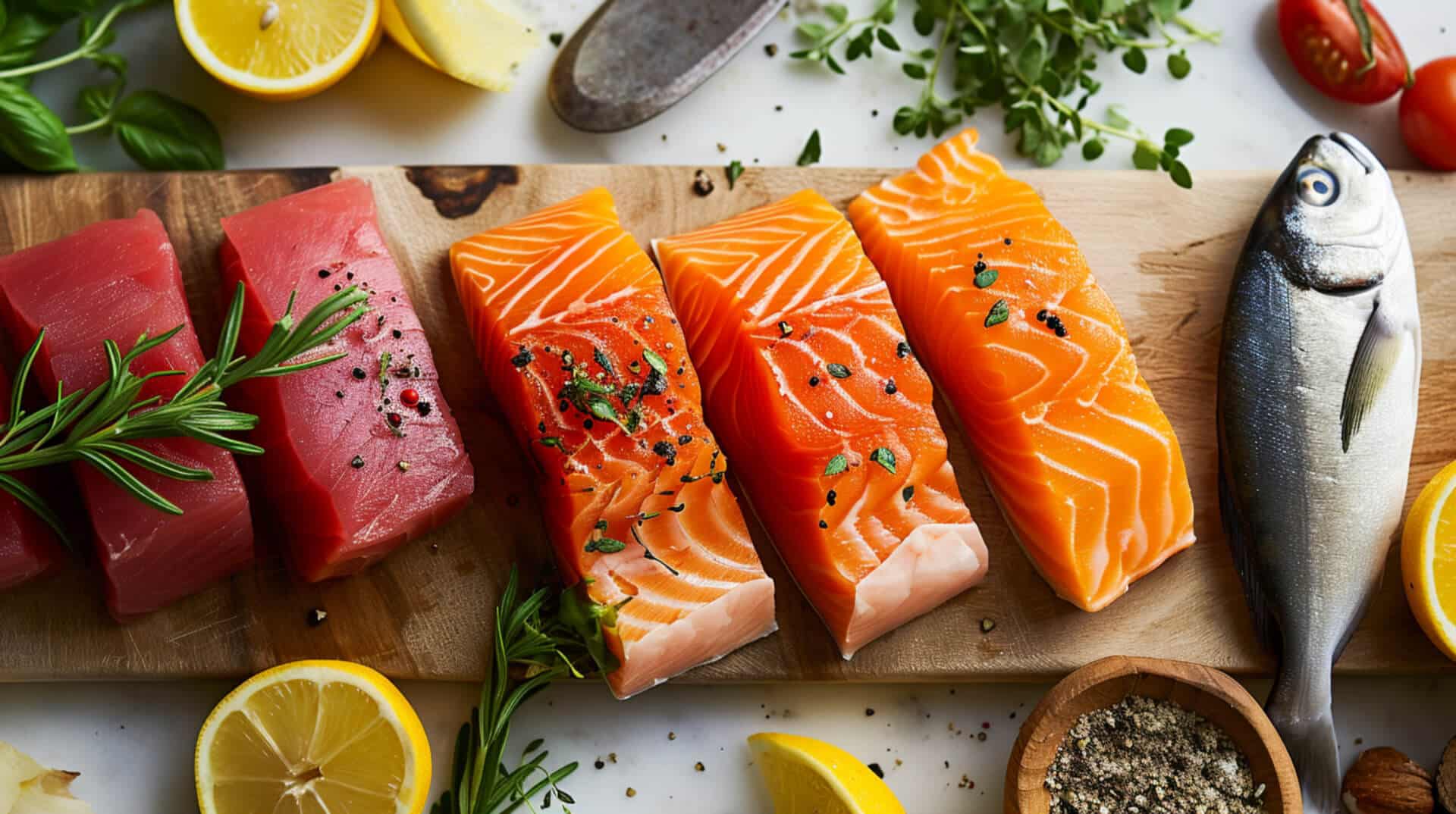
When considering the inclusion of fish in your cat’s diet, it’s essential to understand the specific nutrients that cats require and how fish can meet these needs. Cats are obligate carnivores, which means they rely on nutrients found only in animal products.
Essential Nutrients Found in Fish
Fish is a rich source of high-quality protein and omega-3 fatty acids, both of which are vital for your cat’s health. Protein is crucial for muscle maintenance and overall growth, while omega-3s support skin, coat, and joint health, as well as cognitive function.
Balancing the Diet
While fish can be a nutritious component of your cat’s diet, it’s important to serve it in moderation. A diet consisting of up to 10% fish can complement other sources of nutrition, ensuring a balanced intake of all necessary vitamins and minerals.
Nutritional Risks to Consider
However, there are risks to consider. Feeding your cat too much fish can lead to a dietary imbalance, particularly if the fish is high in mercury or contains harmful bones. At Frozen Fish Direct, we ensure that our fish selections are safe, deboned, and appropriate for feline consumption.
By choosing our products, you’re providing your cat with the benefits of fish while minimising potential risks. We recommend consulting with your vet to tailor your cat’s diet to their specific needs, ensuring they receive all the benefits fish can offer without overexposure to any single nutrient.
Cooking for Feline Health: Best practices in Preparing Fish

Understanding the proper preparation of fish for your cat is crucial. While raw fish might seem like a natural choice, it poses several health risks. Cooking fish is the safer alternative, and we at Frozen Fish Direct take this seriously, ensuring our products align with these best practices.
Why Cook Fish for Cats?
Cooking fish eliminates harmful pathogens like salmonella and listeria, which can cause serious health issues in cats. Moreover, raw fish contains thiaminase, an enzyme that breaks down thiamine (Vitamin B1), leading to potential deficiencies. By cooking fish, you deactivate thiaminase, preserving the essential B vitamins your cat needs.
Recommended Cooking Methods
The best methods to cook fish for your cat include:
- Baking or poaching: These methods ensure the fish is cooked evenly without the need for added fats or oils.
- Avoiding seasonings: Cats do not need added salt or spices, which can be harmful to their health.
Aligning with Frozen Fish Direct’s Standards
Our frozen fish products are selected with your cat’s health in mind. They are:
- Deboned: To prevent choking hazards and internal damage.
- Unseasoned: To ensure no harmful additives are present.
- Prepared for easy cooking: Our fish is ready to be cooked using cat-friendly methods.
By choosing our fish, you’re opting for a product that’s not only convenient but also tailored for your cat’s health and safety.
Identifying Fish Allergies in Feline Diets
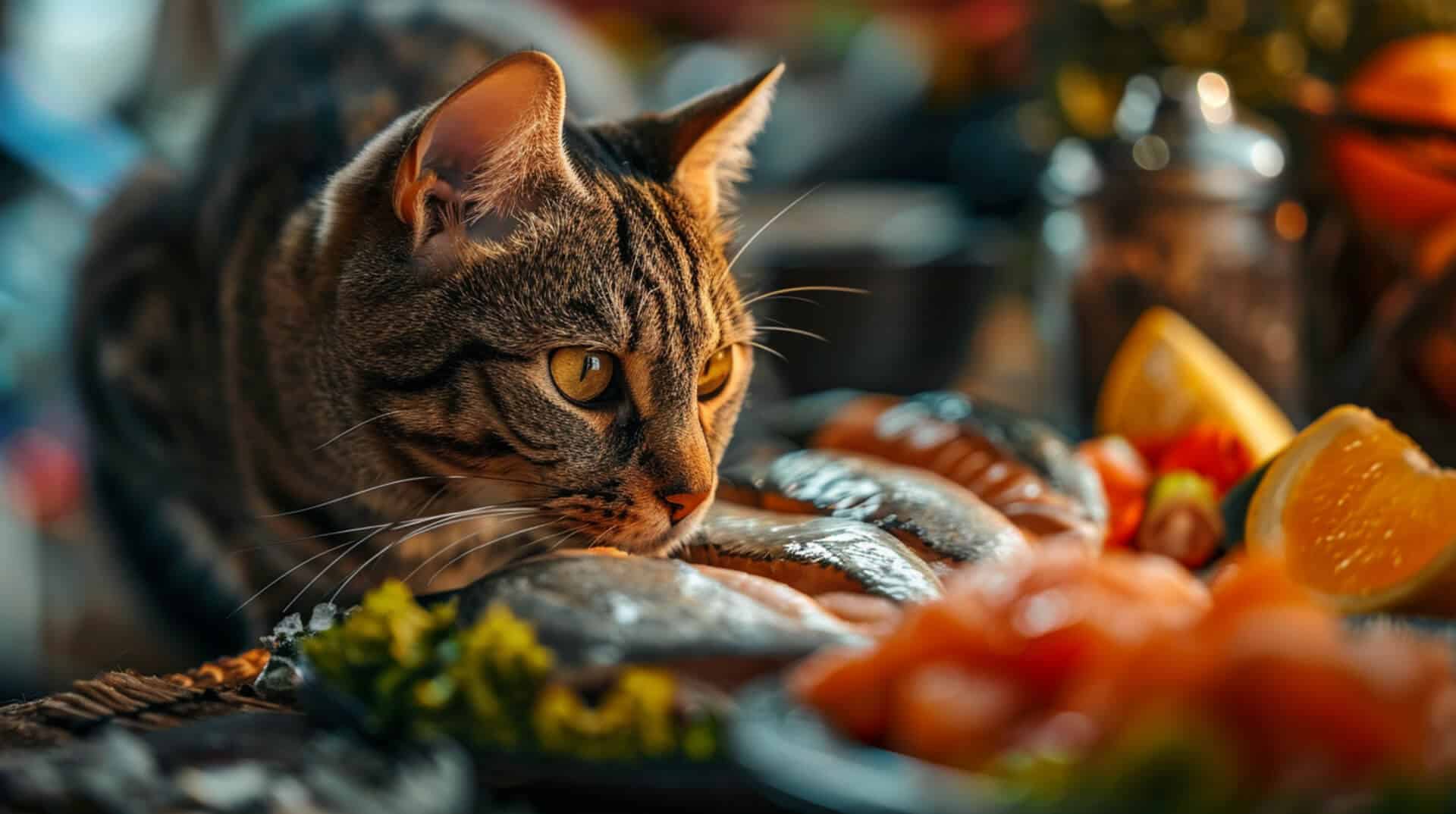
As a responsible cat owner, it’s important to be vigilant about potential food allergies that can affect your pet’s well-being. Fish allergies, though less common, can manifest in cats and require careful management.
Common Symptoms of Fish Allergies in Cats
If you’re introducing fish into your cat’s diet, watch for signs of allergies such as:
- Skin irritations: Look for excessive scratching or bald patches.
- Gastrointestinal upset: Vomiting or diarrhoea can be indicators of a food allergy.
Diagnosing and Managing Fish Allergies
Should you suspect a fish allergy, we recommend consulting with your veterinarian. An elimination diet may be necessary to pinpoint the exact cause of your cat’s symptoms. Once diagnosed, managing a fish allergy involves avoiding the allergen and finding suitable dietary alternatives.
Alternatives for Cats with Fish Allergies
For cats with fish allergies, there are plenty of nutritious alternatives. Poultry, beef, and specially formulated hypoallergenic diets can provide the necessary nutrients without the risk of an allergic reaction.
Our Commitment to Cats with Dietary Restrictions
At Frozen Fish Direct, we understand the importance of catering to all cats, including those with dietary restrictions. We offer a variety of fish alternatives that are safe and nutritious for cats with allergies. Our team is dedicated to providing high-quality options to keep your cat healthy and happy.
Enhancing Feline Health with Fish Oil
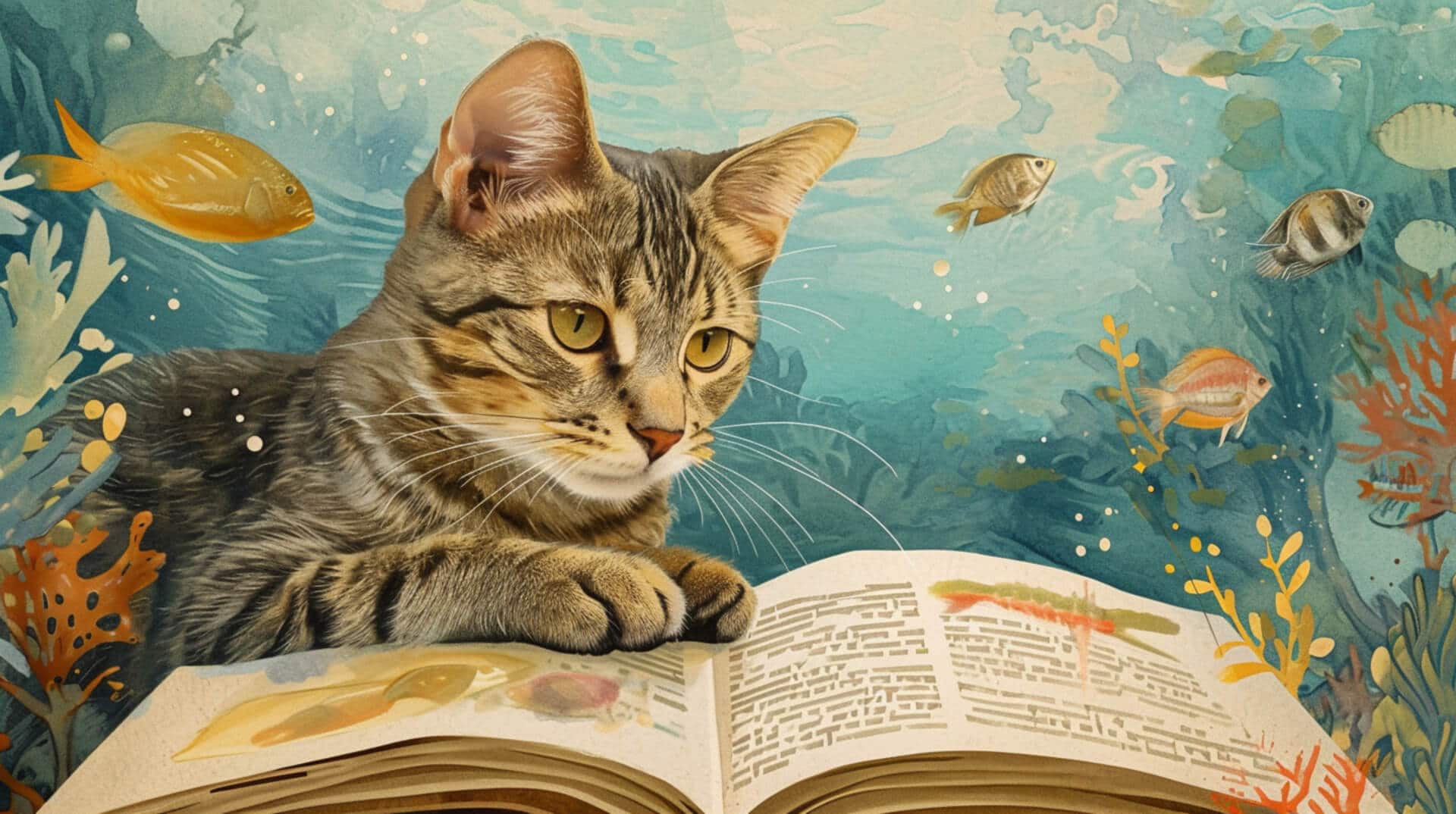
Fish oil is renowned for its health benefits for cats, particularly due to its rich content of omega-3 fatty acids. These essential nutrients are key to maintaining a glossy coat, reducing inflammation, and supporting cognitive health in felines.
Benefits of Omega-3 Fatty Acids
Omega-3s, found abundantly in fish oil, are essential for:
- Skin and Coat Health: They contribute to a shiny coat and healthy skin.
- Joint Health: They can help reduce inflammation associated with arthritis.
- Cognitive Function: They support brain health, especially in ageing cats.
Incorporating Fish Oil into Your Cat’s Diet
To safely add fish oil to your cat’s diet, consider the following:
- Moderation: As with any supplement, it should be given in moderation.
- Quality: Choose high-quality fish oil supplements to avoid contaminants.
- Vet Consultation: Always consult with your vet before introducing new supplements.
recognising the Need for Additional Omega-3s
Signs your cat may benefit from more omega-3s include:
- Dry Skin: Indicative of a potential deficiency in essential fatty acids.
- Dull Coat: A lacklustre coat can often be improved with omega-3 supplements.
Our Commitment to Your Cat’s Nutrition
At Frozen Fish Direct, we offer a selection of products that can enhance your cat’s intake of omega-3 fatty acids. We understand the importance of a well-rounded diet and are here to provide you with the resources to ensure your cat’s nutritional needs are met.
Understanding Mercury Risks in Fish for Cats
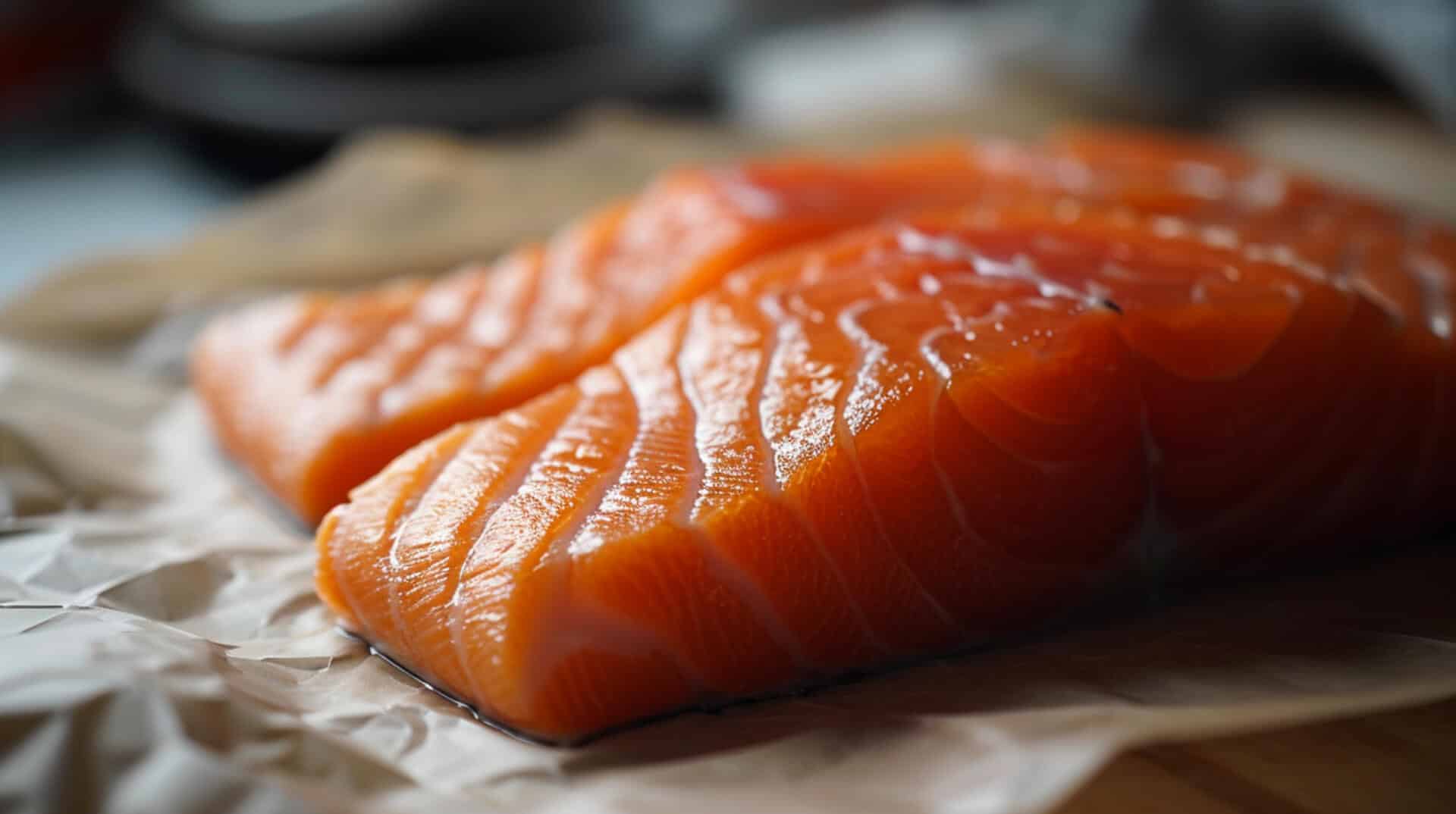
Mercury exposure is a serious concern for cat owners who wish to include fish in their pet’s diet. This toxic element can accumulate in fish, especially in larger and longer-lived species, and can lead to health issues in cats, including kidney damage and neurological problems.
Choosing Low-Mercury Fish for Your Cat
To safeguard your cat’s health, it’s important to select fish known for lower mercury levels. Smaller fish like sardines, anchovies, and salmon are typically safer choices. These species have shorter lifespans and are lower on the food chain, which generally means they accumulate less mercury.
Our Approach to minimising Mercury Risks
At Frozen Fish Direct, we prioritise your cat’s safety by sourcing fish with minimal mercury exposure. We meticulously choose suppliers who provide us with fish that are not only fresh and of high quality but also safer for your cat’s consumption.
Recommended Low-Mercury Fish Types
We recommend the following fish types for their lower mercury content:
- Salmon: Offers high omega-3 content with lower mercury risks.
- Sardines: Small and nutritious, with minimal mercury accumulation.
- Anchovies: High in protein and omega-3s, with low mercury levels.
By choosing our products, you’re ensuring that your cat enjoys the nutritional benefits of fish without the heightened risk of mercury exposure.
Embracing Dietary Diversity for Feline Health
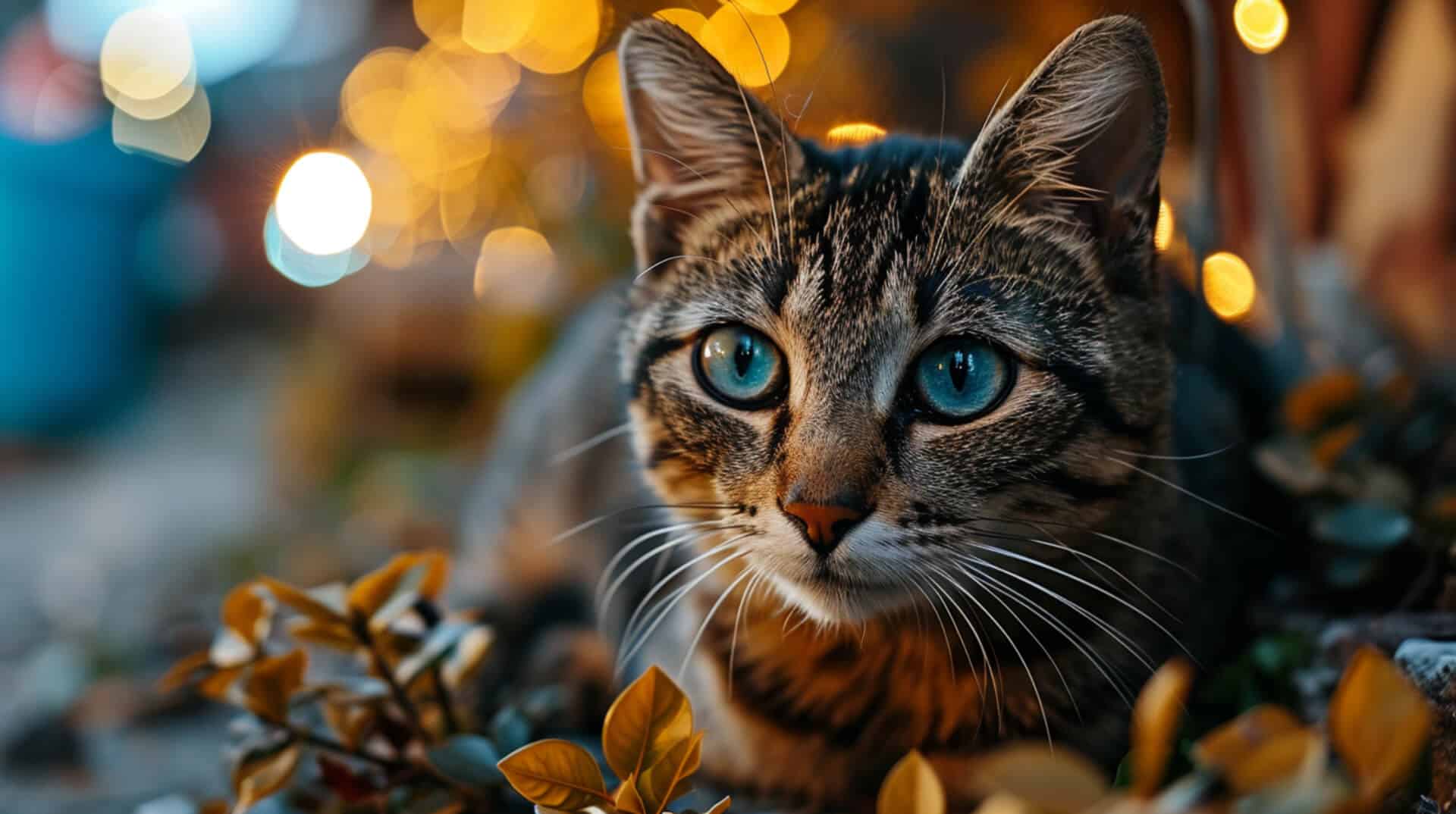
Just as humans benefit from a varied diet, so do our feline friends. Introducing different types of fish into your cat’s diet can provide a spectrum of nutrients, each fish offering its unique profile of vitamins, minerals, and essential fatty acids.
The Role of Fish in a Balanced Cat Diet
Fish should be a part of a diverse diet for cats. It’s a fantastic source of lean protein and omega-3 fatty acids, which are crucial for maintaining a healthy coat, reducing inflammation, and supporting cognitive health. However, relying solely on one type of fish or protein source can lead to nutritional gaps.
Preventing Nutrient Deficiencies
Dietary diversity helps prevent nutrient deficiencies and guards against the overconsumption of any potentially harmful substances found in certain fish, like mercury or specific enzymes that can degrade essential B vitamins. By varying the types of fish you feed your cat, you’re ensuring a more balanced intake of nutrients.
Our Commitment to Your Cat’s Diverse Diet
At Frozen Fish Direct, we offer a wide selection of fish products that are perfect for adding variety to your cat’s diet. From the omega-3 rich salmon to the small, nutrient-packed sardines, our range supports the inclusion of multiple fish types in your cat’s meal plan. We’re dedicated to providing high-quality, safe options to keep your cat’s diet diverse and nutritionally complete.
Sustainable Fishing: A Priority for Cat Owners and the Planet
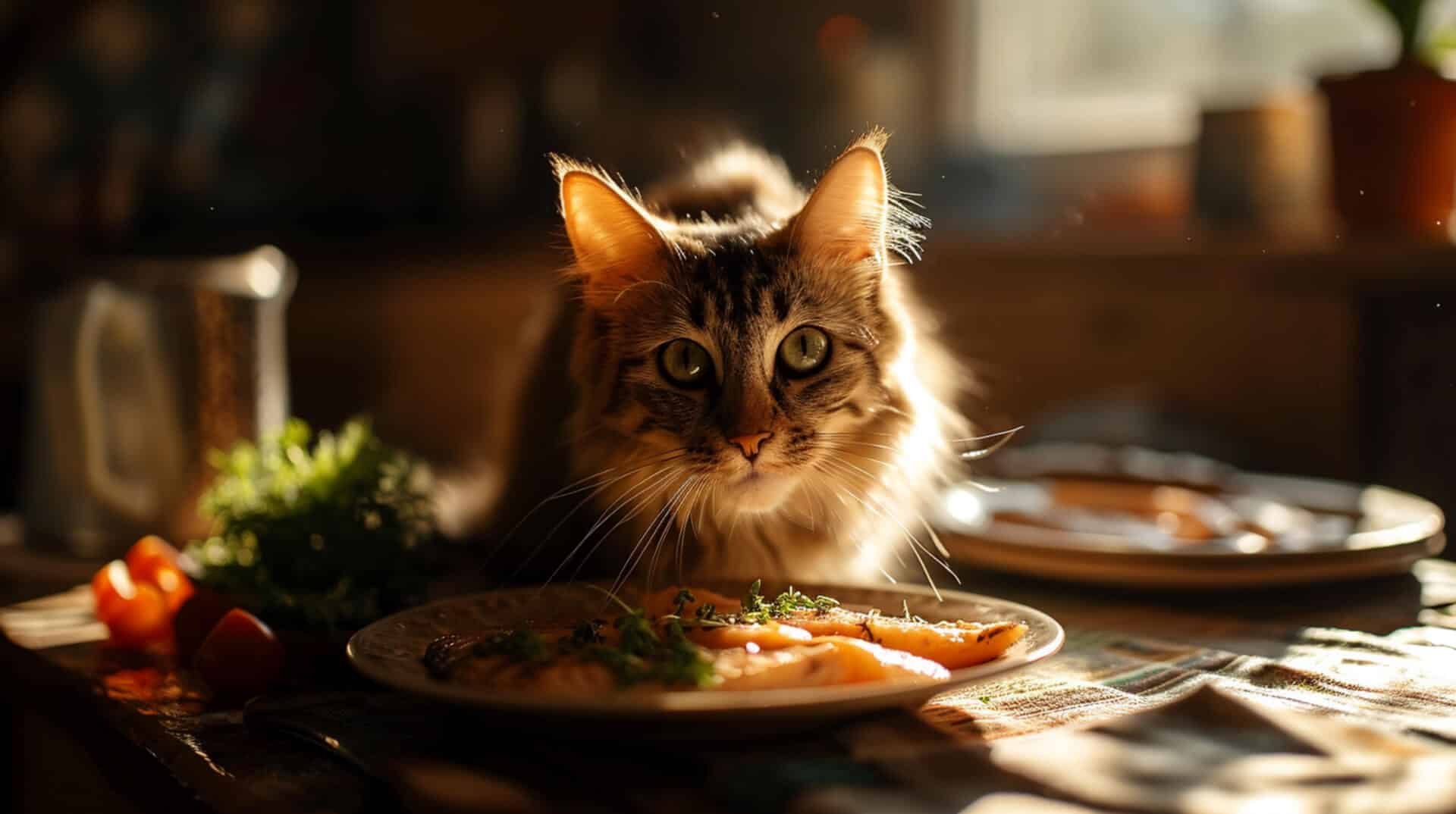
As cat owners, it’s not only our responsibility to ensure the health of our pets but also to consider the impact of our choices on the environment. Sustainable sourcing of fish is a critical aspect of responsible pet ownership.
The Impact of Sustainable Fish on the Environment
Choosing sustainable fish helps maintain the balance of marine ecosystems. Overfishing and harmful fishing practices can deplete fish populations and damage the ocean’s health. By supporting sustainable practices, you contribute to the conservation of marine life.
Health Benefits of Wild-Caught Fish for Cats
Wild-caught fish often have a higher nutritional value due to their natural diet and the clean environments in which they live. They are typically richer in omega-3 fatty acids and free from the antibiotics and growth hormones that can be present in farmed fish.
Our Commitment to Sustainability at Frozen Fish Direct
At Frozen Fish Direct, we are committed to providing you with fish that is not only safe and nutritious for your cat but also sourced with the utmost respect for the environment. We ensure that:
- Our fish come from wild-caught sources or responsibly farmed environments.
- We support seasonal fishing practices to avoid disrupting breeding cycles.
- We provide transparent information about the origin of our products.
By choosing our services, you’re making a decision that benefits your cat’s health and the well-being of our oceans.
Deciphering Cat Food Labels for Quality Fish Ingredients
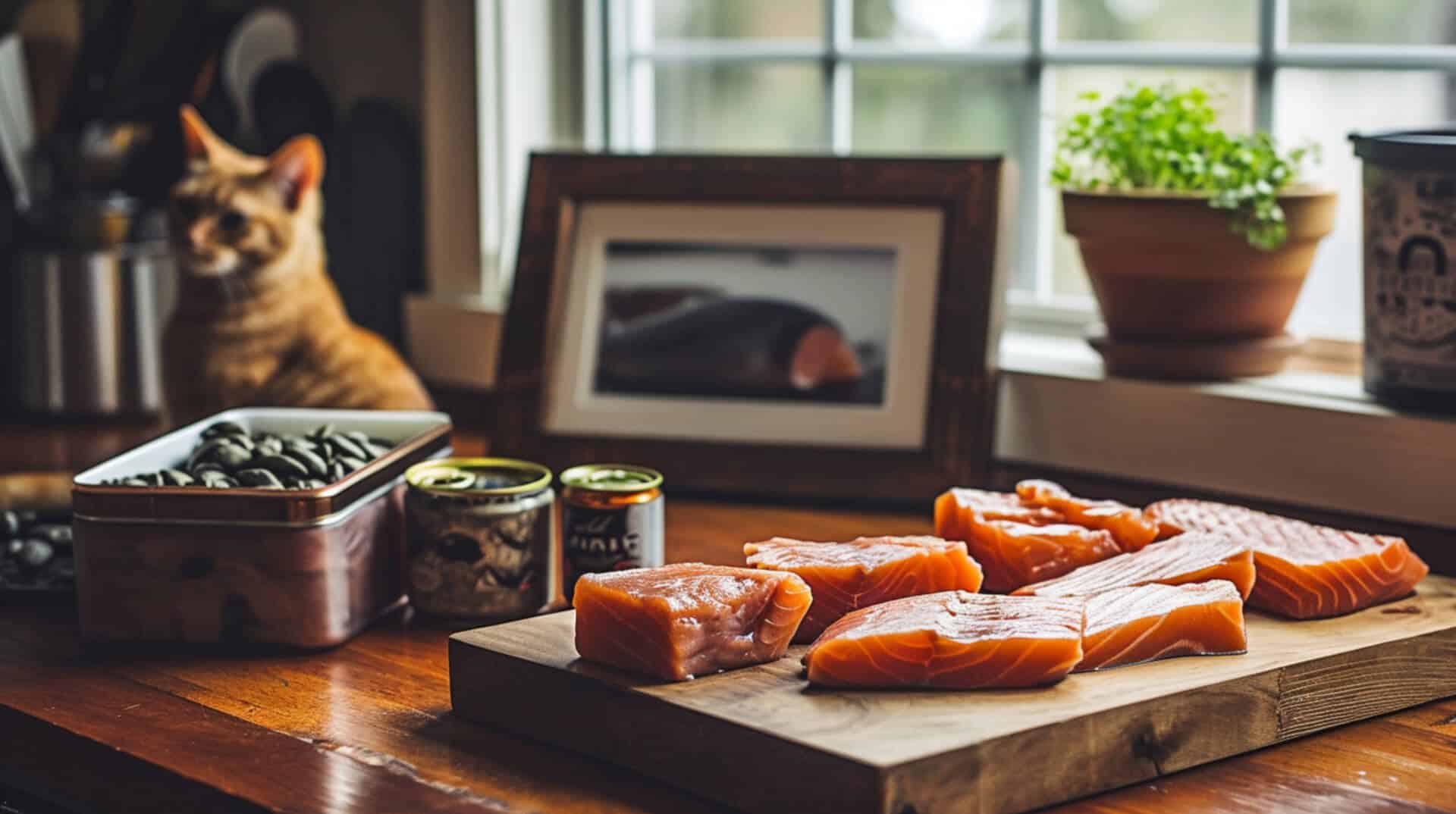
When selecting fish-based cat food, it’s crucial to understand the label to ensure you’re providing the best for your feline friend. High-quality ingredients lead to better health outcomes, and at Frozen Fish Direct, we believe in transparency and quality assurance.
Key Ingredients for Premium Fish-Based Cat Food
Look for these indicators of high-quality fish in cat food:
- Specific Fish Types: Labels should list the exact type of fish used, such as salmon or cod.
- High Protein Content: Quality cat food will have fish as one of the first ingredients, indicating a high protein level.
- Omega-3 Fatty Acids: These should be present, as they are essential for your cat’s coat and joint health.
Spotting Low-Quality Fish Ingredients
Be wary of these red flags on cat food labels:
- Generic Terms: Phrases like “fish meal” or “ocean fish” without specifying the species can indicate lower quality.
- Fillers and By-Products: These are often used to bulk up the food but offer little nutritional value.
Understanding “Unspecified Sources”
The term “unspecified sources” often means the exact origin of the ingredient is not disclosed, which can be a concern for quality and safety.
Our labelling Promise
At Frozen Fish Direct, we ensure:
- Clarity: Our labels clearly state the type of fish, its origin, and the processing method.
- Quality: We only source from reputable suppliers who meet our high standards.
By choosing our products, you’re choosing a partner dedicated to providing the best for your cat’s health and your peace of mind.
Navigating Human Foods in a Cat’s Diet
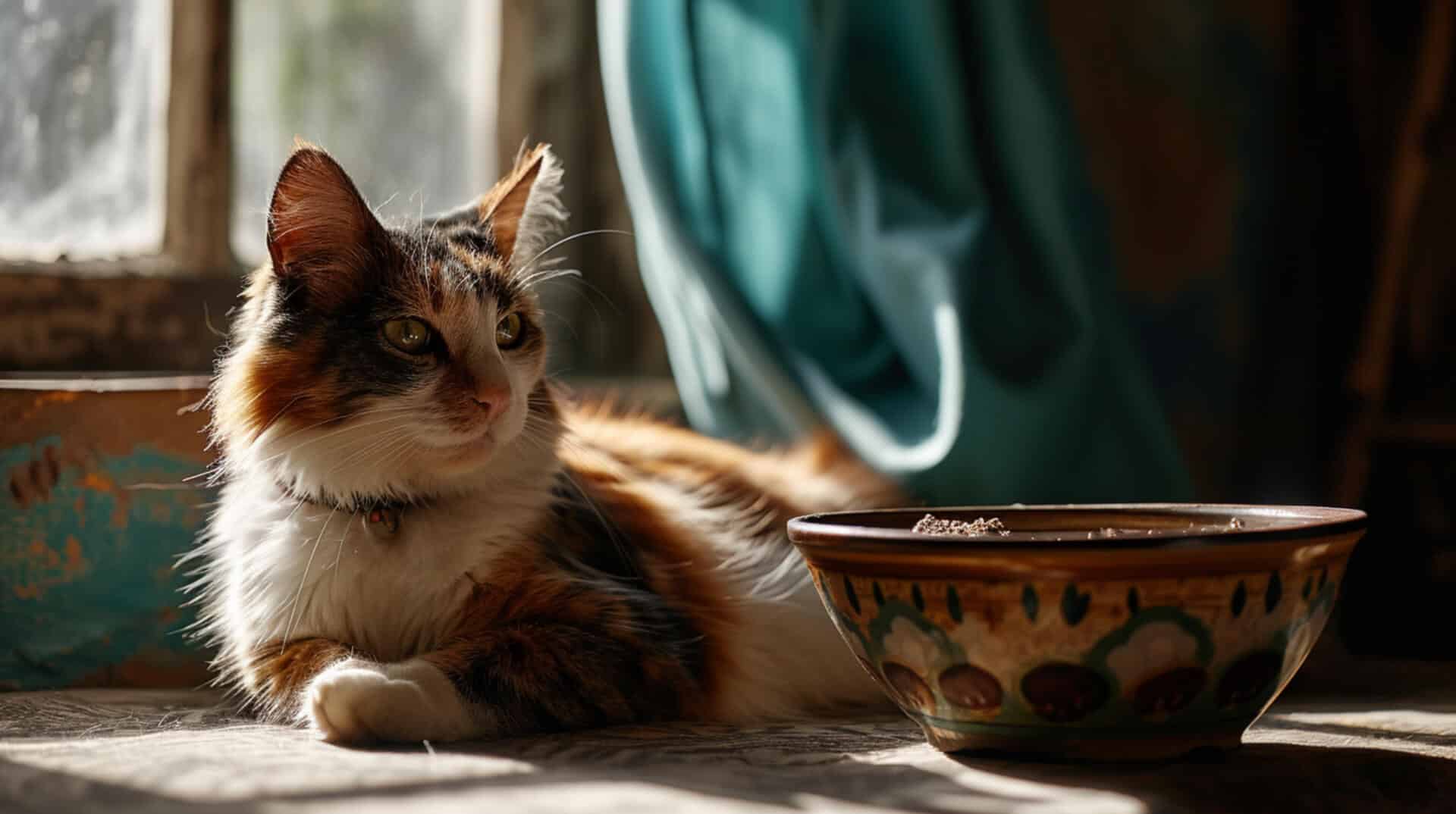
As cat owners, it’s natural to want to share our meals with our furry companions. However, it’s crucial to recognise that certain human foods can be harmful to cats. At Frozen Fish Direct, we’re committed to educating you on which foods to avoid and how to treat your cat safely.
Toxic Foods for Cats
Some common human foods are toxic to cats and should always be avoided:
- Chocolate: Contains theobromine, which is poisonous to cats.
- Onions and Garlic: Can cause digestive issues and damage red blood cells.
- Grapes and Raisins: Known to cause kidney failure in cats.
- Citrus Fruits: The oils and compounds in citrus can cause stomach upset.
The Risks of Human Food to Cats
Human foods can contain ingredients that are indigestible or dangerous to cats. Foods high in fat and salt can lead to obesity and other health issues. It’s important to keep your cat’s diet tailored to their specific nutritional needs, which are different from ours.
Guidelines for Safe Treats
If you wish to give your cat a treat from your plate, follow these guidelines:
- Cooked Eggs: Offer a good source of protein when cooked thoroughly.
- Cooked Meat: Ensure it’s boneless and free from seasonings or sauces.
- Cheese: Only in very small quantities, as some cats may be lactose intolerant.
Our Advice for Healthy Alternatives
We at Frozen Fish Direct suggest sticking to treats designed for cats or consulting with your vet for advice on suitable human food treats. Our range of products provides safe, nutritious alternatives that will satisfy your cat’s palate without compromising their health.
Establishing Proper Fish Portions for Cats
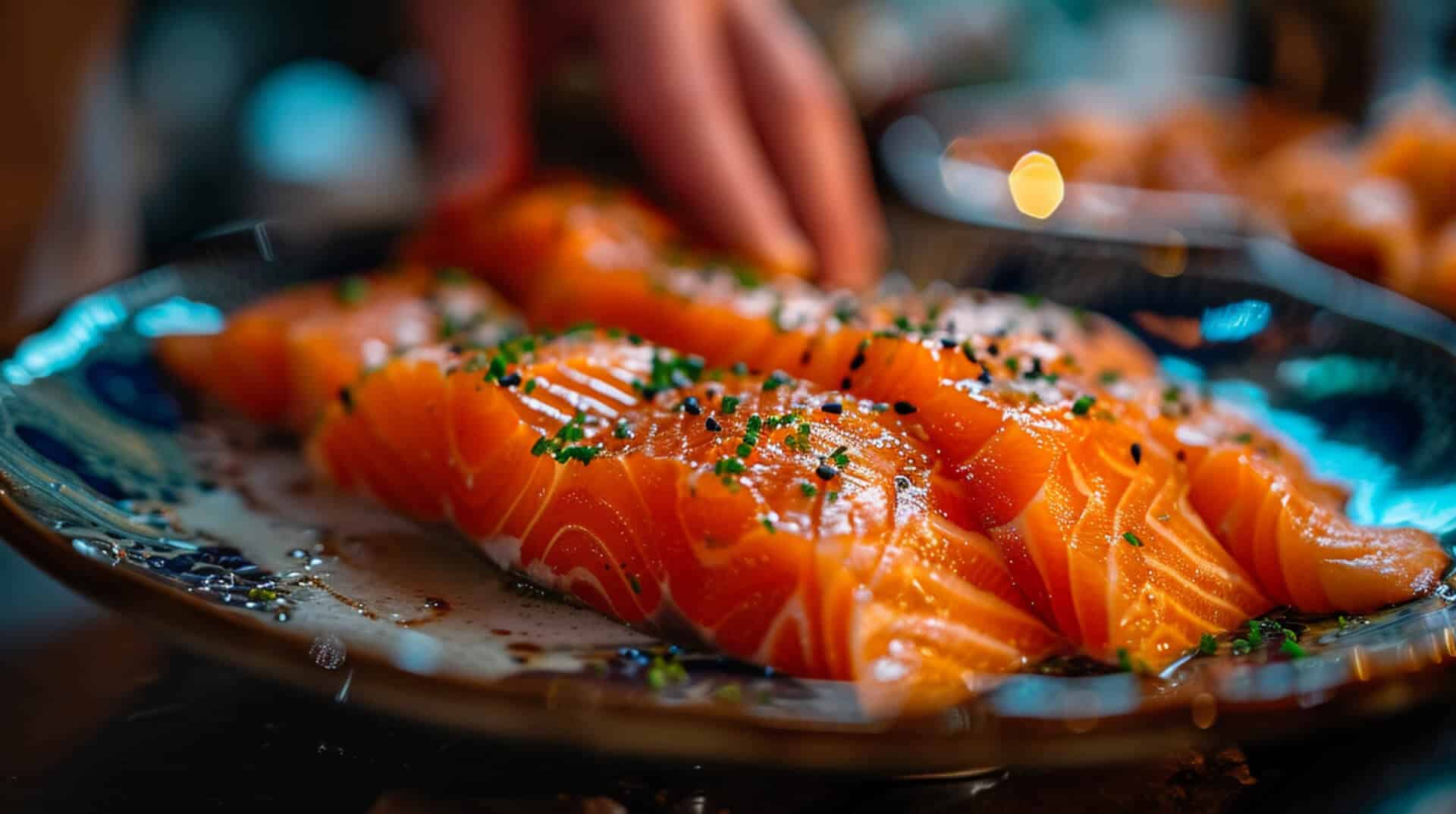
Understanding the right amount of fish to feed your cat is essential for their health. At Frozen Fish Direct, we advocate for moderation to prevent nutritional imbalances.
Recommended Fish Portions in a Feline Diet
The general guideline is that fish should only make up a small portion of your cat’s overall diet. Specifically, fish should constitute no more than 10% of a cat’s total dietary intake. This ensures that your cat receives a variety of nutrients from different food sources.
The Consequences of Overfeeding Fish
Overfeeding fish can lead to health issues such as:
- Nutritional Imbalances: Excessive fish can disrupt the balance of nutrients, leading to deficiencies or excesses.
- Mercury Exposure: Certain fish may contain high levels of mercury, which can accumulate in your cat’s body over time.
recognising the Signs of Overfeeding
Be alert to symptoms that may indicate your cat is consuming too much fish:
- Digestive Upset: Vomiting or diarrhoea can be a sign of overfeeding.
- Changes in behaviour: Lethargy or lack of appetite may occur.
Our Role in Your Cat’s Nutritional Health
We at Frozen Fish Direct provide clear feeding guidelines to help you serve the correct portions. Our commitment to your cat’s health extends beyond providing quality fish; we aim to be a resource for responsible feeding practices.
Connect With Frozen Fish Direct for Expert Feline Nutrition Advice

At Frozen Fish Direct, we understand that your cat’s nutrition is paramount. That’s why we offer personalised advice to help you make the best choices for your feline friend’s diet.
Reaching Out for personalised Service
To get in touch with us for tailored advice on feline nutrition:
- Contact Us: Reach out via our website’s contact form or give us a call.
- Expert Consultation: Our team of experts is ready to answer your questions and provide guidance.
Our Services for Your Cat’s Nutritional Needs
We’re proud to offer services that support your cat’s health:
- Wide Selection: Our extensive range of fish products caters to all dietary needs.
- Quality Assurance: We ensure that all our fish is frozen fresh, safe, and of the highest quality.
- Nutritional Information: Detailed product descriptions help you understand the benefits of each fish type.
Why Choose Frozen Fish Direct
Choosing us means opting for:
- Sustainability: Responsibly sourced fish that’s good for your cat and the planet.
- Convenience: Doorstep delivery of frozen fish, maintaining nutrient integrity.
- Trust: A family-owned business that values quality and customer satisfaction.
Ensuring the Best Fish Choices for Your Cat
By contacting Frozen Fish Direct, you’re taking a step towards:
- Optimal Health: We help you select fish that contribute to a balanced diet.
- Informed Decisions: Our expertise guides you to make choices that suit your cat’s specific needs.
We’re here to ensure that your cat enjoys the benefits of fish in their diet safely and deliciously.







